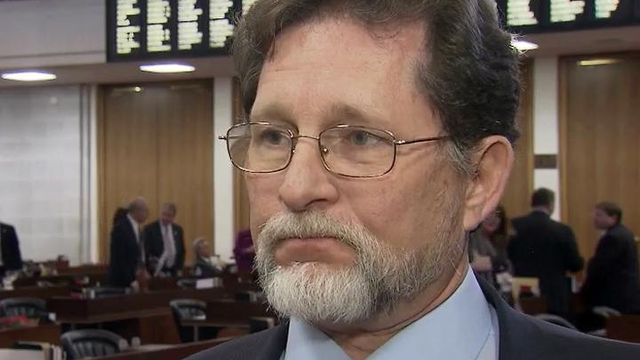Gun proposal highlights nullification debate
A proposed amendment filed this week to restrict what limits can be placed on gun ownership in North Carolina is the latest shot in the growing debate over nullification of federal laws.
Posted — UpdatedThe bill, which would allow a person with a valid concealed handgun permit to carry it pretty much anywhere in North Carolina, also includes language stating that the state "shall never engage in a general confiscation of the weapons of its citizens and shall never cooperate in the effort of any other entity to do so."
"Whether it's federal government, United Nations, whoever it might be, you have no right to take guns from law abiding citizens," Pittman said Friday. "I think this state should make clear that we won't tolerate that and won't cooperate with it."
He acknowledged that no one is trying to confiscate weapons, but he said it might be only a matter of time.
“It’s been seen in history – in other nations – that confiscation was the end goal, and some of the same control tactics were used leading up to that," he said. "We’re trying to kind of head that off before it can get that far.”
House leaders haven't yet set a date for the amendment to be heard in committee. If it's approved by lawmakers, the amendment would go before voters in 2014.
Pittman said many of his constituents believe in nullification – that a state can simply refuse to comply with federal law.
"The states created the federal government, not the other way around, and the federal government needs to learn once again to be servants of the states and not our masters," he said.
Over the years, however, the courts have found one big problem with nullification.
"It's patently unconstitutional," said Rep. Rick Glazier, D-Cumberland.
Glazier, a constitutional law professor, said the supremacy clause in the Constitution makes it clear states can't just refuse to follow federal laws if they don't agree with them.
"That is not a mature option given to responsible legislators. It has never been that way," he said. "They tried that in the Civil War, and we've come a long way since then."
Nullification used to be a fringe idea, but it's gotten more popular during the gun control debate. Even some North Carolina sheriffs have publicly said they will defy federal gun laws with which they disagree.
"I think this nullification view is driven by what’s happening in Washington and by the polarization between the parties, which is destroying some confidence in the ability of government to govern," Glazier said. "That’s something we need to work on."
Nullification also has come up in debates over marijuana legalization and the Affordable Care Act.
Glazier said there are better ways to deal with laws one finds disagreeable. "The answer is not nullification. It's litigation or political elections and the democratic process."
Related Topics
Copyright 2024 by Capitol Broadcasting Company. All rights reserved. This material may not be published, broadcast, rewritten or redistributed.






